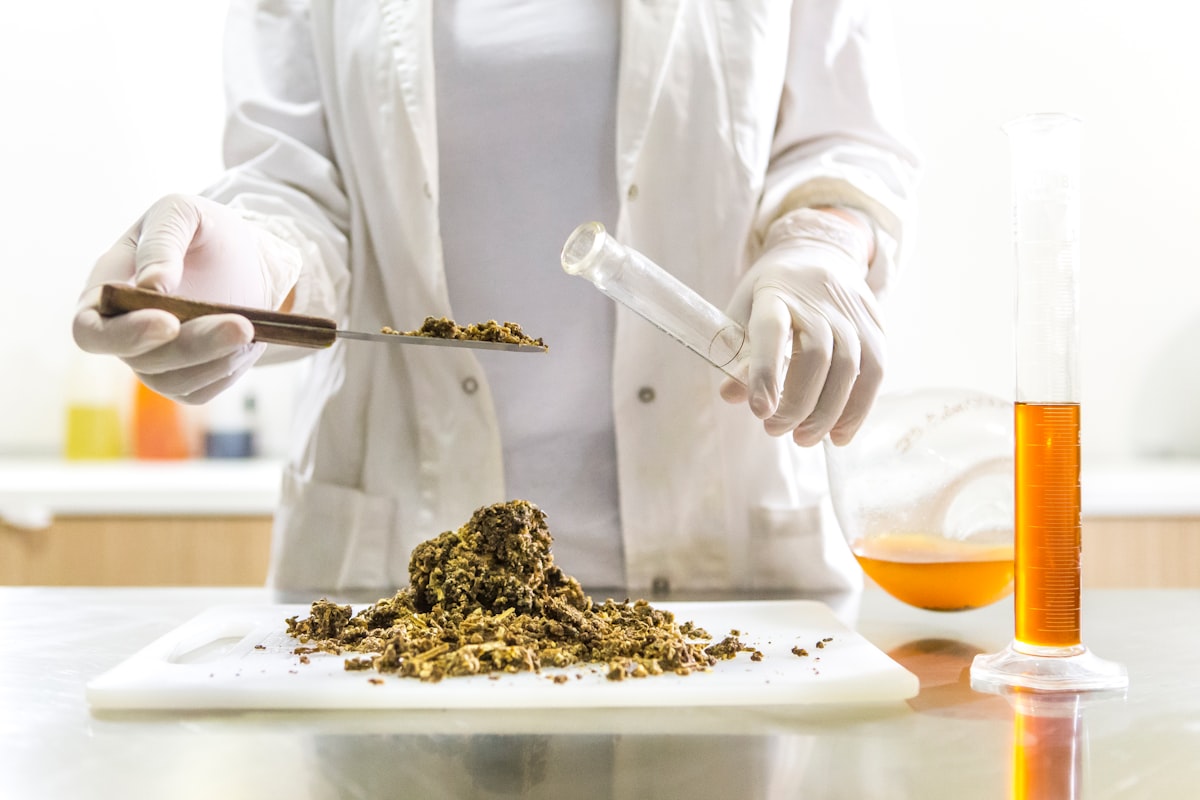Propolis-based mouthwash developed to fight tooth decay in indigenous communities
The product and geopropolis contain organic compounds that have demonstrated healing, anti-inflammatory, and antibacterial activity. It is important to promote alternative medicine since in many localities it is the only option. Work is progressing to propose legislation.

A multidisciplinary team of university scientists is working on the development of a formulation of propolis to obtain an herbal medicine to support, in particular, the population of indigenous communities that depend on traditional medicine in primary health care. The goal is to develop a preparation with antimicrobial properties in the form of a mouthwash to combat caries-causing bacteria, which is properly absorbed and therapeutically effective, and which complies with the regulations established for its distribution to the public.
Propolis is one of the richest bee products. Throughout history, it has had multiple uses, for the treatment of respiratory or digestive diseases, or as an antibacterial and healing agent. However, its properties vary according to its place of origin. The World Health Organization stressed the importance of revaluing traditional medicine, to which, in this case, added value is given through scientific research, said the participants in the inter-institutional project.
Propolis are resins that bees obtain from plants, which they add with salivary secretions and mix with wax, mud, clay, or earth. This material, with which they seal holes or cracks in their colony, is a thermoregulatory agent and also serves as an antibiotic and protection against invaders; if one enters, it is "mummified" with a resin coating. Their properties vary because neither Apis mellifera (European honey bee) nor native species visit the same plants. The characteristics of each will depend on its geographical origin and the type of bee.
Propolis is a complex mixture with approximately 500 components, including flavonoids (phenolic compounds of plant origin with diverse pharmacological properties), the most common and abundant, as well as terpenoids, phenolic acids, and esters. Likewise, in the geopropolis, the research team found terpenoids, products of great relevance due to their healing, anti-inflammatory, and antibacterial activity.
The working group developed and validated analytical methodologies to quantify the marker flavonoids of propolis from the highlands of Mexico. Thanks to them, they established that there are two characteristics of this region, and "we have differentiated them among propolis samples from the states of Puebla, Zacatecas, Chiapas, Tlaxcala, and Guanajuato. These analytical procedures are of vital importance to guarantee the quality and, therefore, the efficacy of this product of the beehive".
When the sample is obtained, the main components are identified; then a phytochemical study is carried out and these components are isolated in pure form. In the laboratory, they are given the appropriate treatment and with the use of solvents (ethanol and water), the preparation is made. Once the profile of the propolis, i.e., components and possible pharmacological activity, is known, then they are challenged against bacteria, fungi, and other disease-causing agents, and it is determined if they are effective in different uses, not only for humans but also for animals.
The uses given to them in traditional medicine are taken into account: healing wounds, oral cavity problems or infections, for example. Based on experience with animals and humans, it is known which bacteria cause gingivitis, caries, skin infections, and so they are tested.
One case is leishmaniasis, a neglected condition that causes important skin wounds. In the southeast of the country they use propolis and geopropolis to treat it; they found that the components of these resins inhibit the growth of the tiny parasite that causes the disease, even better than the drug used for the treatment. In other words, with the use of this natural product, patients can avoid reaching the systemic stage of the disease. These studies are carried out by the group led by Ingeborg Becker, from the Faculty of Medicine.
The scientists also conducted a study to determine the antioxidant activity in more than 40 samples of propolis. After testing it, it was established that in diabetes oxidative stress plays an important role. The focus was on nephropathy (kidney disease) and it was found that, if consumed in the early stages of the disease, it slows down the process, and that is very important to avoid chronic renal failure, dialysis, or kidney transplantation.
The beekeepers who cooperate with this research receive an added value for their product because they know, with a scientific basis, if their propolis is better for the respiratory tract, healing, curing herpes in the mouth, etc., and treatment times can be made more efficient. That is the important thing, to promote alternative medicine since in many communities it is the only one available. It is functional, but it has to be tested.
Until today, consumers only have access to generic products (syrups, sprays, etc.) in different concentrations, which may or may not work for different uses, because they are not validated in most cases. The team analyzed close to 100 samples from various entities of the Republic, producers, and seasons so that the results are statistically valid. Results have even been compared with samples of Chinese propolis.
The information that has been collected can be used to establish specifications and update the respective Mexican official standard so that it is more representative for the analysis of this important natural resource that also strengthens the immune system.




